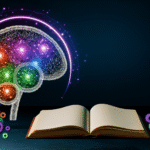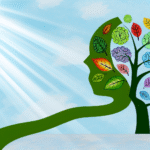Emotional Intelligence Simplified: Essential Techniques for Better Regulation You Can Use Today
Introduction
Imagine navigating your day not just with an intellect sharp as a tack, but with an emotional compass that guides you through storms and sunshine alike. Emotional Intelligence Simplified: Techniques for Better Regulation You Can Use Today isn’t just a catchy phrase—it’s the key to transforming how you interact with yourself and those around you. Emotional Intelligence (EI) is no longer a buzzword; it’s a vital skill that can enhance your personal and professional life. By mastering EI, you can improve relationships, make better decisions, and enhance your mental well-being. Let’s delve into the essentials of EI and unpack practical techniques you can implement immediately.
Understanding Emotional Intelligence
What is Emotional Intelligence?
Emotional Intelligence refers to our ability to recognize, understand, manage, and influence our own emotions and the emotions of others. This concept was popularized by psychologist Daniel Goleman in the 1990s and is comprised of five key components:
- Self-Awareness: Recognizing your emotions and their influence on your thoughts and behavior.
- Self-Regulation: The ability to control or redirect disruptive emotions and impulses.
- Motivation: Harnessing emotions to pursue goals with energy and persistence.
- Empathy: Understanding the emotional makeup of other people.
- Social Skills: Managing relationships to move people in desired directions.
Why is Emotional Intelligence Important?
High EI contributes significantly to personal success and satisfaction. People with strong emotional intelligence often enjoy healthier relationships, better performance at work, and improved mental health outcomes. This means that investing time in developing your EI can pay dividends in various aspects of life.
Techniques for Better Regulation: Steps You Can Use Today
1. Cultivating Self-Awareness
Self-awareness is the foundation of EI. Here are tools you can use today:
- Journaling: Spend 10 minutes each day reflecting on your emotional experiences. What triggered a particular emotion? How did it affect your behavior?
- Mindfulness Meditation: Engaging in mindfulness can help you observe your emotions without judgment. This can be as simple as focusing on your breath for a few minutes.
Case Study: Sarah, a project manager, started journaling about her emotions. She discovered a pattern of frustration around team meetings, which allowed her to address it directly and improve collaboration.
2. Practicing Self-Regulation
Self-regulation involves managing disruptive emotions. Techniques include:
- Pause and Reflect: When you feel a strong emotion, take a moment to breathe and assess the situation before reacting.
- Reframing Negative Thoughts: Instead of viewing a setback as a failure, consider it a learning opportunity.
Case Study: James, a sales executive, was prone to anger during tough negotiations. After practicing deep-breathing techniques, he learned to pause, allowing him to respond calmly and achieve better outcomes.
3. Enhancing Motivation
To skyrocket your motivation, consider:
- Setting SMART Goals: Specific, Measurable, Achievable, Relevant, Time-bound goals can help maintain focus and increase emotional commitment.
- Visualization: Envisioning your goals can engage your emotions more deeply.
Case Study: Maria, a college student, struggled with motivation to study. By setting SMART goals and visualizing her graduation, she increased her focus and ultimately graduated with honors.
4. Developing Empathy
Empathy is crucial for effective communication. Here’s how to enhance it:
- Active Listening: Focus fully on the speaker, showing that you value their perspective.
- Perspective-Taking: Try to see situations from others’ viewpoints.
Case Study: During a performance review, Kevin practiced active listening with his team. He discovered underlying issues affecting their morale, leading to stronger team cohesion.
5. Sharpening Social Skills
To improve your social skills:
- Practice Assertiveness: Communicate your needs and feelings directly and respectfully.
- Networking: Engage in social environments where you can practice and enhance your interaction skills.
Case Study: Lisa joined a local networking group. By practicing social skills in various scenarios, she became more confident and connected with potential clients effectively, resulting in increased business opportunities.
Tables for Quick Reference
| EI Component | Techniques | Expected Outcomes |
|---|---|---|
| Self-Awareness | Journaling, Mindfulness | Greater emotional clarity and understanding |
| Self-Regulation | Pausing, Reframing | Improved emotional responses |
| Motivation | SMART Goals, Visualization | Enhanced focus and drive |
| Empathy | Active Listening, Perspective-Taking | Stronger personal and professional relationships |
| Social Skills | Assertiveness, Networking | Enhanced communication and collaborations |
Conclusion
In the end, developing Emotional Intelligence is an ongoing journey, but it is one that promises substantial rewards. Emotional Intelligence Simplified: Techniques for Better Regulation You Can Use Today provides accessible starting points that can yield profound changes in how we navigate our emotional landscape. The beauty of EI lies in its applicability; the techniques explored in this article can be integrated into your daily life.
Embrace the journey toward mastering Emotional Intelligence. Whether you’re a burgeoning professional or simply someone looking to enhance personal interactions, these techniques will empower you to regulate your emotions more effectively and cultivate healthier relationships.
FAQs
1. What is Emotional Intelligence?
Emotional Intelligence (EI) is the ability to recognize, understand, and manage our own emotions while also being able to recognize and influence the emotions of others.
2. Are there specific signs of high emotional intelligence?
Yes, signs of high EI include strong interpersonal skills, effective communication, empathy, adaptability, and the ability to maintain calm under pressure.
3. Can Emotional Intelligence be improved?
Absolutely! Emotional Intelligence can be developed through various activities, such as mindfulness, active listening, and regular self-reflection.
4. How does Emotional Intelligence impact my career?
High EI can lead to better teamwork, leadership abilities, and conflict resolution skills, ultimately enhancing overall job performance and career satisfaction.
5. Is there a difference between Emotional Intelligence and IQ?
Yes, Emotional Intelligence involves emotional awareness and regulation, while IQ (Intelligence Quotient) focuses on cognitive abilities. Both play significant roles in personal and professional success.
In your pursuit of mastering Emotional Intelligence, remember: the techniques may be simple, but the impact can be transformative. Begin today, and watch every interaction, every relationship deepen and flourish.












